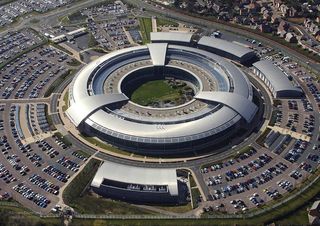GCHQ reveals ISIS was the target of its first major cyber attack
Outcome of offensive operations ranged from denying online services to destroying equipment

The UK conducted its first massive-scale cyber attack against ISIS, systematically degrading its online infrastructure, GCHQ's new director has revealed.
These operations, conducted last year, significantly contributed towards suppressing online terrorist propaganda and hindered ISIS' ability to coordinate attacks, Jeremy Fleming confirmed while making his first public speech as GCHQ director.
In his talk in Manchester, the former MI5 agent outlined how GCHQ has been growing its online counterterrorism capabilities for more than a decade, with action taken leading to significant shifts in the fight on the ground.
"Daesh's ability to inspire, direct and enable attacks, and the simple tactics they use make stopping attacks much, much harder." Fleming said. "But the UK's CT team -- led by MI5 and the Police, supported by GCHQ, MI6 and the Military -- is evolving fast to match this threat."
He continued: "These operations have made a significant contribution to coalition efforts to suppress Daesh propaganda, hindered their ability to coordinate attacks, and protected coalition forces on the battlefield.
"But cyber is only one part of the wider international response. This is the first time the UK has systematically and persistently degraded an adversary's online efforts as part of a wider military campaign. Did it work? I think it did."
Marking the end of CyberUK 2018, the National Cyber Security Centre's (NCSC) flagship event on cybersecurity, Fleming used his speech to outline the shifting geopolitical and technological landscapes, as well as GCHQ's role in countering cyber threats.
Get the ITPro. daily newsletter
Receive our latest news, industry updates, featured resources and more. Sign up today to receive our FREE report on AI cyber crime & security - newly updated for 2024.
The outcome of such cyber attacks, not limited to operations against ISIS, range from denying online services, disrupting a specific online activity, deterring an individual or a group, or even destroy equipment and networks.
He also used the speech to highlight the growing threat of Russia, particularly in light of recent events that are "particularly stark and shocking."
"We'll continue to expose Russia's unacceptable cyber behaviour, so they're held accountable for what they do, and to help Government and industry protect themselves," he said. "The UK will continue to respond to malicious cyber activity in conjunction with international partners such as the United States."
The revelation follows news that GCHQ spies had "over-achieved" in 2017, according to a report by Parliament's Intelligence and Security Committee (ISC).
The ISC report celebrated the fact GCHQ had delivered on the first of three stages in its mission to bolster its cyber capabilities, with an official confirming the agency had developed almost twice as many potential hacks than its targets.
Meanwhile, efforts to combat the spread of online terrorist propaganda have also taken the form of tools such as an auto-blocker for extremist content which Home Secretary Amber Rudd suggested Internet Service Providers (ISPs) could be forced to adopt while speaking in Silicon Valley in February.
Tools such as the auto-blocker, which its developers ASI Data Science said could be configured to detect 94% of extremist video uploads, are increasingly likely to comprise the main weapons in the fight against ISIS moving forwards.

Keumars Afifi-Sabet is a writer and editor that specialises in public sector, cyber security, and cloud computing. He first joined ITPro as a staff writer in April 2018 and eventually became its Features Editor. Although a regular contributor to other tech sites in the past, these days you will find Keumars on LiveScience, where he runs its Technology section.




